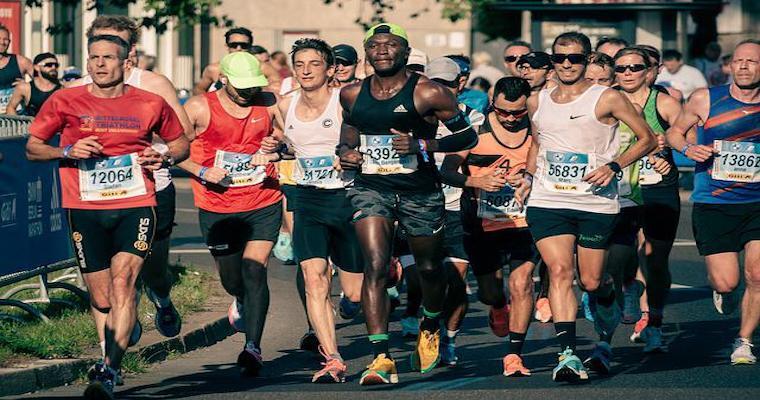
The popularity of endurance sports is growing year on year. More people are taking time and finding time to exercise with friends and family on the road and in the water. But with an increased number of people taking part in endurance sports and with the nutritional demands of these sports influencing the performance and enjoyment of the marathoners, triathletes and cyclists, we need to know what we need to eat and drink.
Professor Asker Jeukendrup explored the nutrition requirements for endurance sports to shed light for those involved at recreational, sub-elite and elite sport. In endurance sports, our muscles work hard to propel our bodies along roads, trails and through the water. Our muscles need to contract and relax continuously to take us from the start to the finish line. To contract muscle, we need muscle glycogen and blood glucose. These fuels come from the foods and drinks we ingest. When our muscle glycogen and blood glucose reduce, we feel tired; so to keep going for longer, we need to fuel our muscles and liver glycogen to get the most from our performance attempts.
Anyone who has run, cycled or swam will realise how thirsty they become, especially in warm weather. Our thirst shows our body hydration is low (or sub-optimal) and needs suitable fluids to replenish lost water and elements like sodium and potassium. Dehydration also adversely affects our performance. As our body runs, for example, we generate enormous heat that we need to expel from our body. We can expel this heat by sweating, but sweat loss means water loss. We need to hydrate before events and to hydrate during events. In this blog, we shall explore our fluid needs.
So what do we need to drink? To perform at our best, we need to start exercise with sufficient fluids – we need to be in an euhydrated state. The advice provided through the research by Professor Asker Jeukendrup is to sip beverages – about 5-7 ml/kg BW (body weight) at least four hours before the exercise event. The researchers relate one way to test our hydration is the amount and colour of the urine we produce. If we cannot produce urine, or our urine is dark (or highly concentrated), an athlete should drink another 3-5 ml/kg BW about 2 hours before the event.
All athletes differ. They differ in their tastes, training, and fluid needs. Some athletes, because they cannot drink enough fluids during exercise or lose body water quickly during exercise (think about running a marathon in 30-degree heat) may need to hyperhydrate which means to take in more fluids beyond what we normally require. Of course, we need to do this work with the support of trained professionals and work out what works best for our body and the events we undertake. We need to take on water and glycerol solutions carefully to prevent hyponatraemia (which is a loss of sodium in sweat and taking in lots of water). Learning about us and our body is vital to prepare for endurance performance. and good health in all our sporting endeavours.
Reference
Jeukendrup, A. E. (2011). Nutrition for endurance sports: Marathon, triathlon, and road cycling, Journal of Sports Sciences, 29:sup1, S91-S99, DOI: 10.1080/02640414.2011.610348
Image by wal_172619 from Pixabay
